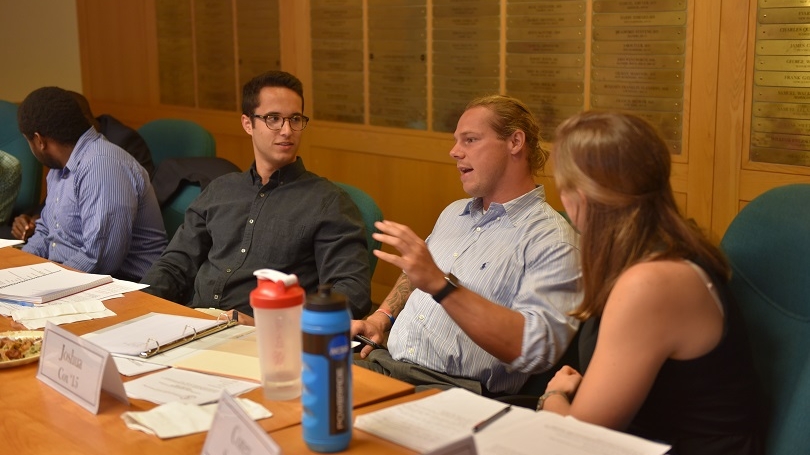
- Public Policy
- Leadership
- Funding
- News & Events
- About the Center
Back to Top Nav
Back to Top Nav
Back to Top Nav
Back to Top Nav
The Rockefeller Leadership Fellows program had the privilege of welcoming one of the Rockefeller Center’s very own faculty members, Ron Shaiko, to its January 14, 2016 session. Professor Shaiko is a Senior Fellow and Associate Director of Curricular and Research Programs, and has been teaching at Dartmouth College for fifteen years. For this session, Professor Shaiko opened the floor with a discussion of how “bonding” and “bridging” operates in civil society. Whereas bonding social capital refers to the strong connections built within core, homogenous groups of people, bridging social capital refers to the connections built between these groups of people, forming a heterogeneous network of individuals.
In applying these concepts to student life at Dartmouth, we learned about the mechanisms by which stakeholders (i.e. students, faculty, and administrators) can influence the bonds and bridges built within our community. This is an issue that was addressed in a recent New York Times op-ed by Frank Bruni, who references Professor Shaiko’s perspective on students’ tendency to “default to sameness” if they are not “[nudged] . . . into interactions outside of their comfort zones.” Bruni’s piece, “The Lie About College Diversity,” discusses the gap between how higher education institutions advertise diversity, and how it translates into the daily life of students at these schools. While many higher education institutions go to great lengths to ensure a statistically heterogeneous student body, their efforts prove to be fruitless if colleges fail to bridge homogenous groups together as a collective.
Professor Shaiko shed valuable light on how this dichotomy plays out at Dartmouth, drawing upon his fifteen years of experience to reveal how the meaning of diversity at our school has evolved during his tenure. As leadership fellows, it is important to consider the relationship between bonding and bridging in our own lives, and how they interrelate with each other. While bonding social capital is effective in creating strong groups of like-minded individuals, civil society cannot function properly without bridging social capital between these groups. Bonding social capital without bridging social capital undermines the value of diversity in civil society, which is prohibitive of meaningful community leadership.
Submitted by Austin Boral '16, Rockefeller Leadership Fellow